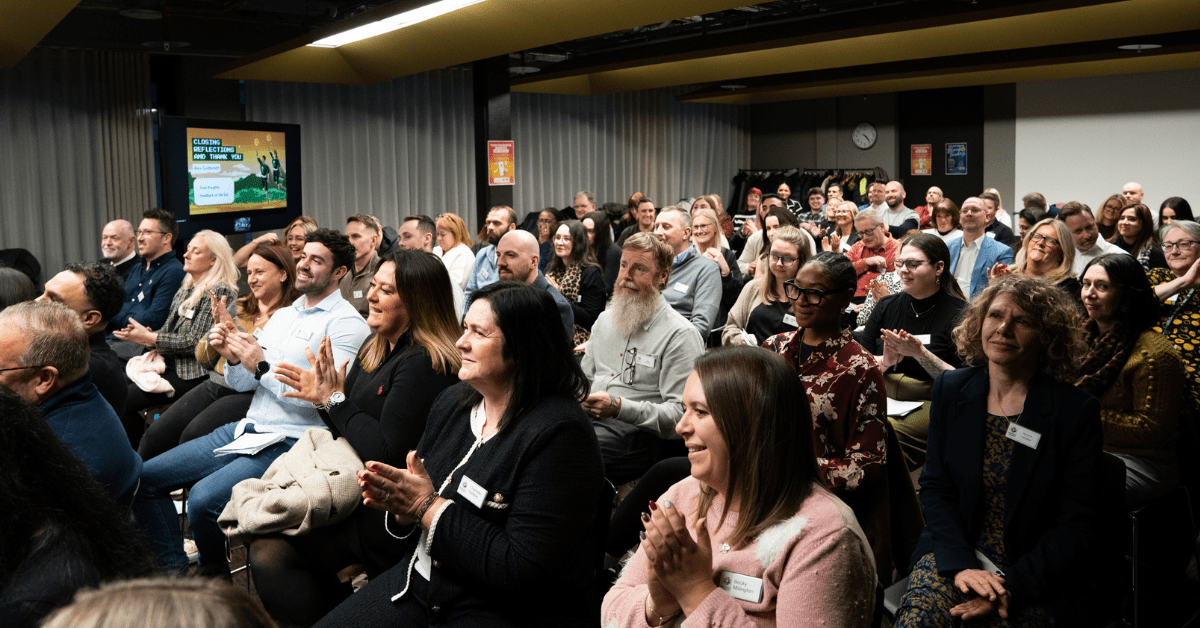Stress: what can we do to help reduce it in the workplace?

National Stress Awareness Day, on 5th November, is the perfect time to pause and take a moment to think about how we can better support ourselves and our colleagues when life gets a little overwhelming.
Stress is something we all experience – but for many of us, it’s more than just the occasional tough day. According to the Health and Safety Executive (HSE), around 776,000 workers in Great Britain reported work-related stress, depression or anxiety in 2023/24, accounting for nearly half of all cases of work-related ill health.
That’s why it’s so important for employers to pay attention. Beyond the moral responsibility to care for your people, you also have a legal duty under the Health and Safety at Work Act 1974 and the Management of Health and Safety at Work Regulations 1999 to protect your employees’ health, safety and welfare. This includes recognising, assessing and managing the risks associated with work-related stress – and creating an environment where people feel safe to speak up when things get too much.
So, with that in mind, let’s take a closer look at what stress actually is – and what we can all do at work to help manage it.
So, what actually is stress – and why should you care?
If you search online, you’ll find plenty of different definitions of stress, but the World Health Organisation sums it up nicely as ‘a state of worry or mental tension caused by a difficult situation.’
That’s a good place to start – but I like to think about stress as something that can be both good and bad.
The good kind: eustress
This is the short-term burst of stress hormones that gives us energy, helps us perform and keeps us motivated. It’s that little push that helps us meet deadlines, stay alert in a big meeting or tackle a tricky project. We all need a bit of this from time to time!
The not-so-good kind: distress
When stress becomes too much or goes on for too long, that’s when it can start to have a negative impact. What feels manageable for one person might feel completely overwhelming for another, depending on what else they’re juggling in life.
If someone’s feeling consistently under pressure, you might start to notice signs such as:
- Changes in mood or behaviour
- Difficulty concentrating
- Fatigue or physical tension
- Withdrawal from social interactions
- More frequent mistakes or dips in performance
If these signs start to crop up regularly, it could be a sign of chronic stress, which can affect both physical and mental health. Spotting the early warning signs, in ourselves and others, is key.
So, what can we do at work to help reduce stress?

Create space
- Start conversations – make time for regular catch-ups where people can talk openly about how they’re coping, both at work and at home.
- Lead by example – show your team that it’s okay to take a break, ask for help or say when things feel too much.
- Provide a safe space – this could be a quiet room in the office, a ‘listening ear’ scheme or even a regular wellbeing check-in.
- Encourage self-awareness – tools like the performance pressure curve can help employees identify where they are and what kind of support might help.
- Listen well – practice non-judgemental and active listening; sometimes, just being heard can make all the difference.
Make adjustments
Workplace adjustments don’t need to be big or permanent to make an impact. Here are a few examples that can really help:
- Offer an extra break or encourage time outdoors during the day.
- Provide healthy, caffeine-free snacks in the workplace.
- Provide noise-cancelling headphones for focus, or on the flip side, create collaborative spaces for connection.
- Try walking meetings – they boost creativity and reduce tension.
- Pair employees with a workplace buddy or mentor.
- Tailor deadlines to individual capacity where possible.
- Acknowledge effort and celebrate wins in meaningful ways.
- Create a ‘wellbeing box’ that anyone can dip into, filled with things like:
- Fidget toys
- Colouring books or puzzles
- Positive affirmation cards
- Aromatherapy oils or calming lotions
- Mindfulness or breathing cards.


Share resources and support
Knowing where to turn for help is half the battle.
- Remind colleagues about internal support options like your Employee Assistance Programme (EAP).
- Use tools like a stress risk assessment or Wellness Recovery Action Plan (WRAP) to structure support.
- Signpost to external resources such as:
- Hub of Hope – for local mental health support
- Apps like Happify or Insight Timer for mindfulness and stress management
- The Stress Container activity from the BBC.
- And don’t forget training! Mental health and stress awareness sessions can help everyone feel more confident supporting each other – you can find out more about the courses we offer here.
We can’t remove stress entirely – it’s part of being human. But by talking openly, offering the right tools and adjustments, and creating a culture of care, we can help make sure stress doesn’t turn into something more serious.
Let’s use National Stress Awareness Day as a reminder that a little understanding and support at work can go a long way toward helping everyone feel – and perform – their best.
The Latest from our Blog…
Check out our blog for all of the latest news, events and updates from Medigold Health.
-

Medigold Health Managers Day… why communication really matters
Late last year, we brought almost 100 managers together for a dedicated Managers Development Day with one clear focus… communication. Not communication as a corporate buzzword. But communication as it actually shows up day-to-day… in conversations, decisions, meetings, feedback, leadership announcements and all the bits in between. The day took place at our investors’, BGF, HQ in Birmingham, giving us the chance to step away from[...]
Read More -

Managing the current UK flu increase and supporting business continuity
Dr Sam Valanejad, Chief Medical Officer – Commercial Sam is Chief Medical Officer – Commercial at Medigold Health and a Consultant Specialist in Occupational Medicine. He leads the development of innovative, evidence-based clinical services, including programmes that help employers protect their workforce from seasonal health risks such as flu. The[...]
Read More -

Introducing our new Protect Microsite: Making occupational health simpler, smarter and more accessible for growing businesses
If you’ve ever tried to arrange occupational health support as a smaller business, you’ll know it isn’t always straightforward. Costs can vary significantly, processes can be confusing and it’s not always obvious what you’re actually paying for. That’s exactly why we created Protect back in 2020 – to give smaller organisations a simple, accessible and cost-effective way to look after their people. Since then, Protect has grown alongside the businesses it supports. What started as a[...]
Read More






